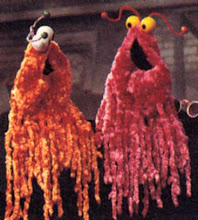"if you can't do what you want to do on your birthday, when can you do it?"
and yes, today is my birthday, and no, i have no compunction about advertising that to the entire world (well, the world that reads this blog, which is, to be fair, much smaller than "the world").
and thus far, it's been a really lovely day. i went to the farmers' market and bought parsley, sage, rosemary, and thyme. (seriously. i did. and i don't mean i purchased the simon & garfunkel song. i purchased the plants. and now i'm going to scarborough fair. . .). and then i bought a good cup of coffee. and i stayed in the sun as long as i could this morning, and i'm going back into it soon.
and so, today also seems like the right day to post a poem of my own, which is not something i do often, because it feels weirdly self-serving, and it feels a little (a lot) like self-promotion, and i'm not very comfortable with any of that. but, well, here it is anyway. (yes, it's the bird poem, for those of you -- cough*dad*cough -- who have requested it).
and, by way of a little introduction, i did make this bird book a long time ago. it's the first book my father said i should publish. it's still tucked up in my closet somewhere, in a faded blue folder with pages dog-eared and battered sticking out the top. it was never finished. but even if i had finished it, i think it would have been a bust of a publication, sadly, especially once the publisher discovered that i'd plagiarized over half of it from the world book encyclopedia "bird" section.
but, as i've talked about in earlier posts, i loved the specificity of the names of the birds; this bird book may be one of the many things that contributed early on to my love of naming things, to holding names in my mouth, to figuring out how to say them. (incidentally, i still have to stutter three times before i can get "quetzalcoatl" out of my mouth). between the bird book and the lands' end catalogues (oh, the colors! "coral, periwinkle, spruce"!) and my parents' gardens, i was set on course for poetry even then, whether i knew it or not.
this poem, then, came much later from a workshop in which we were required to visit with another artist, to spend time with their work and try to write from their work. (this class became the inspiration for the class i teach now on ekphrasis -- writing that comes from art). i visited "pottery rob" and his studio. he was wonderfully kind and patient; i stayed for several hours, in the quiet, the cool, the dark of it. and there were all these tiny pottery creatures in a little net -- sort of a hammock for his creatures. one bird had, it seemed, fallen on the ground a long while ago, and a long crack now ran up its belly, into its breast, ending just below its beak. i held that tiny pottery bird in my hand for a long, long while. i cried. not just for the pottery bird, but for the memory-dam that broke loose, for my own bones which weren't as strong as they should have been, for the bird i'd found long ago on our driveway, for all sorts of things. and this poem is what came from holding that bird.
so, in honor of one more year gone by, and in honor of that tiny cracked bird, and in honor of all the new birds coming out just now to bolster our hope again, here's the poem.
wing into cloud
when you were seven years old, you started on the bird book.
it was called that, the title page in blocky letters: ‘the bird book.’
a set of colored pencils in a blue and red striped bag, and you
remade the encyclopedia, the backyard,
canary, quetzalcoatl, peregrine falcon, goose.
eight weeks in a row you worked: a folder for the papers, a ruler
for writing straight lines, the blue pencil shortened
and dulled for so much sky. you sketched and erased, drew
and erased until the paper wrinkled and smudged
and tore. you made pages of nests, branches, eggshells,
and all the places you could find for a bird, none of them
your home -- a rainforest, cliffs of gray stone, a stiff birch
tree branch, a wide softening sky. you wrote their names
in a table of contents: page two magpies, page five
pelicans, with captions: “a common songbird,”
“a pair of swimmers, with their young,” “a night hunter.”
all of it first in pencil, then traced over with marker.
the day after finishing the passenger pigeon
page, you walked outside to find a blackbird
on your driveway, its wing folded back, its eye closing
with a blue flower-petal eyelid, its glossed feathers
spoked at wrong angles.
with your mother’s lilac-print gardening gloves,
you scooped the bird up, placed him in a shoebox
on a folded towel. the bird’s eye stayed wild, his heart
against your palm beating like mosquito wings. for hours,
you rocked on your haunches, knee to ankle
numb. with your small girl-body shadow over the box,
you whispered, you hummed and sang, until the feathers
settled, the hollowed bones stilled, and you sat back
on the grass and looked at your wrists.
at night, you closed your nightstand drawer with
the book in its folder, its pages out of order, the heron’s wing
half-shaded, the magpie left without a branch, and a blackbird’s
half-memory of pine tree, rooftop, lighthouse, cold air.
(not yet published. please tell all your publishing friends.)
